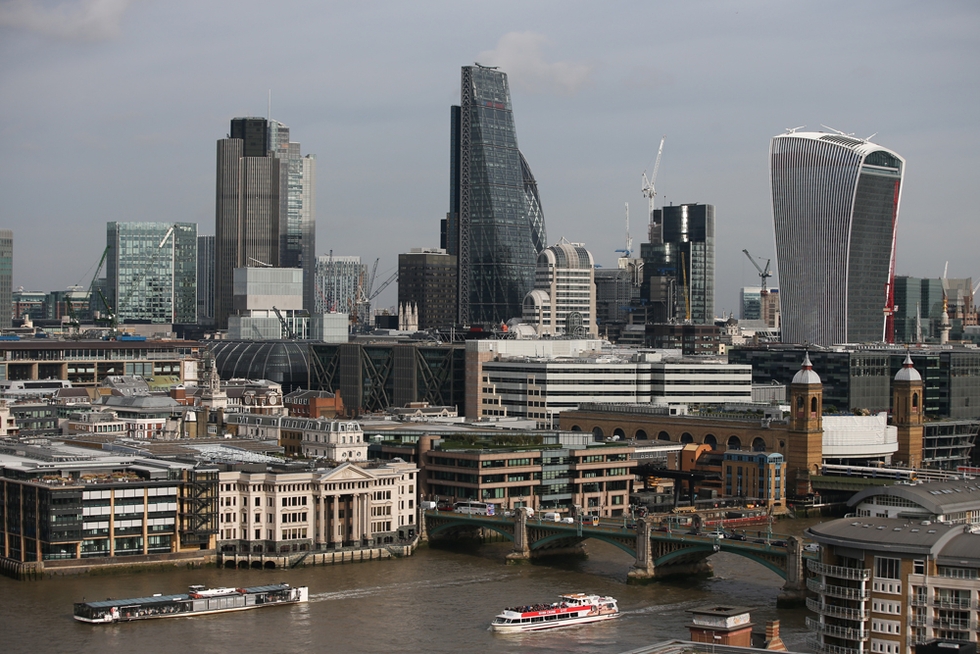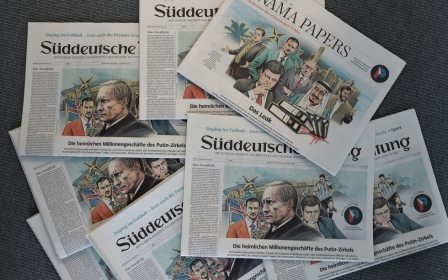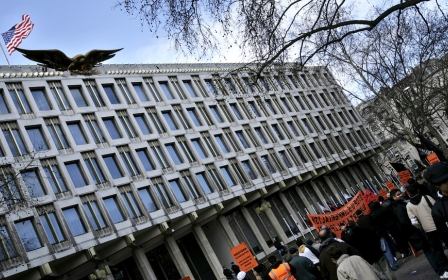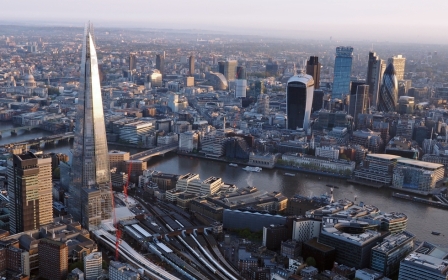The UK's role in cleaning dirty money from the Middle East

It is not a particularly gripping title - "Spring Cleaning: How unexplained wealth orders could have helped the UK’s role in laundering corrupt wealth from Arab Spring states" - but the report released 25 November by Transparency International UK packs quite a wallop once you get past that mouthful.
The Transparency International report talks of amounts running anywhere from £36bn to £90bn of dirty money that is being washed in the global financial hub of London. Much of it is coming from the Middle East.
What the report shows unequivocally is that Britain could have and should have done more to ensure that corrupt leaders in Syria, Egypt and Libya and their families and hangers-on couldn’t hide their stolen billions in Britain.
READ: UK failed in seizing assets of 'despots': Report
It is all too easy. And it is facilitated by professionals who set up shell companies run out of overseas territories such as the British Virgin Islands to launder the booty; by banks and lawyers who do not ask enough questions; by estate agents who look the other way while selling top-end London properties.
Here’s what the National Crime Agency (NCA) in its own recently released report had to say about money laundering and why it is so easy to do in the UK: “Virtually all high-end money laundering schemes, and several cash-based ones, rely on professional enablers to facilitate this activity. The skills, knowledge and abilities of professionals in the financial and legal sectors allow highly complex structures to be created that move and store large amounts of criminal money and conceal ownership effectively.”
And the sums involved are truly eye-watering. The Transparency International report talks of amounts running anywhere from £36bn to £90bn of dirty money that is being washed in the global financial hub of London. Much of it is coming from the Middle East.
Assad's millions in London
To take but one example, Bashar al-Assad’s estimated personal wealth in 2012 was close to £1bn, that of the Assad family nearly £5bn. Most of that wealth is now out of Syria and a lot of it has come to the UK. And while the government has frozen some £100m of assets belonging to leading figures of the Syrian regime, nothing has been seized as the proceeds of criminal activity.
Unsurprisingly London is the overwhelming favourite choice for making dirty money clean. Properties with prestigious addresses that hold and usually exceed their purchase value are a very good way to conceal looted wealth.
Bashar al-Assad’s estimated personal wealth in 2012 was close to £1bn, that of the Assad family nearly £5bn. A lot of that wealth has come to the UK
The report cites the case of Soulieman Marouf, one of Bashar al-Assad’s associates. Marouf was placed on the EU sanctions list in October 2012. The man described by the Guardian newspaper as the Assad family fixer has been investigated for money laundering by the Swiss authorities. Those investigations showed that despite limited business activity his accounts held $31m in cash.
Yet with all that happening, Marouf was still able to purchase a flat in London’s upmarket St John’s Wood in November 2014. It added to an already impressive portfolio that, according to the report, has “at least six luxury properties in London including flats totalling £6 million and a house in St John’s Wood worth £1.3 million”.
The report also details the ease with which family and former government officials of the deposed Mubarak and Gaddafi regimes laundered money through property purchases in London and elsewhere in the UK.
And though a substantial number of assets have been frozen, nothing, with the sole exception of a north London mansion owned by Gaddafi’s son Saadi, worth £10 million, has actually been seized.
It is true that pursuing corrupt money trails is fraught with difficulties: the aforementioned offshore companies with near Harry Potter-like magical powers to conceal, the inability of post-revolution governments to provide the level of evidence sufficient to warrant a UK investigation - in the case of Egypt, growing concern that Mubarak-style corruption is flourishing anew under Abdel Fattah el-Sisi, and in Libya a chaotic situation making it unclear who the effective government actually is. Still, these are not excuses for inaction.
Unexplained wealth orders
Though the Transparency International report makes several recommendations, the one that stands out, albeit with the distinctly unsexy name of unexplained wealth order (UWO), is surely the most sensible.
It works like this: minister A on a small salary in a country with a track record of corrupt government, let’s say Yemen, suddenly buys a multi-million pound mansion in London’s ultra wealthy Hampstead district. How can he afford it? The answer is unexplained wealth and the minister would have to detail to the Serious Fraud Office and the National Crime Agency exactly where the money came from. Questions too would be put to those “professional enablers” the NCA talks about. It wouldn’t take too many UWOs to send out the message that the UK was serious about limiting the flood of dirty money currently pouring into the country.
The power to use UWOs is already in the Criminal Finances Bill passed last year, so why not use it? Why not take one small step to show that despite our many failures to support the legitimate aspirations of people sorely afflicted by corrupt despots and brutal wars, we really do have a sense of fair play and a moral compass that says no to dirty money.
- Bill Law is a Middle East analyst and a specialist in Gulf affairs. He tweets @billlaw49.
The views expressed in this article belong to the author and do not necessarily reflect the editorial policy of Middle East Eye.
Photo: Boats cruise along the Thames as the City of London's skyline is seen from the Tate Modern museum in London on October 27, 2016. (AFP)
This article is available in French on Middle East Eye French edition.
New MEE newsletter: Jerusalem Dispatch
Sign up to get the latest insights and analysis on Israel-Palestine, alongside Turkey Unpacked and other MEE newsletters
Middle East Eye delivers independent and unrivalled coverage and analysis of the Middle East, North Africa and beyond. To learn more about republishing this content and the associated fees, please fill out this form. More about MEE can be found here.





